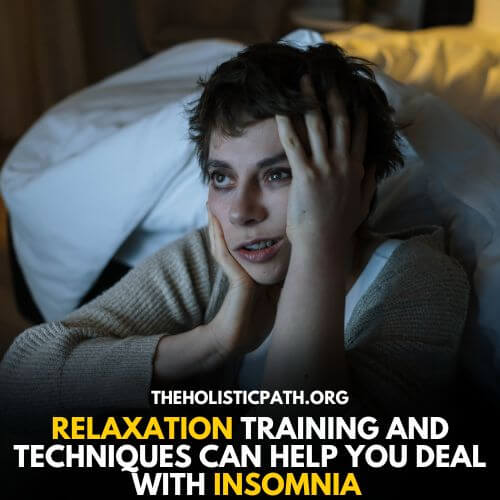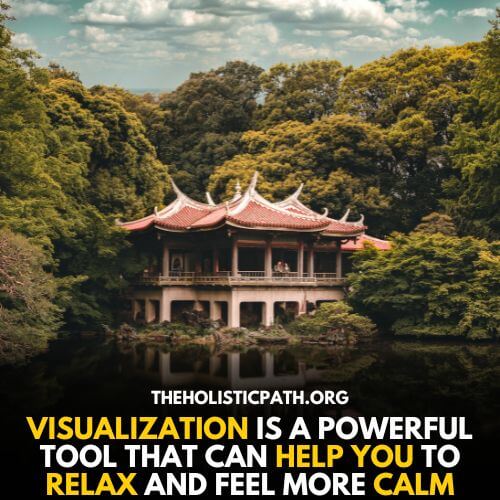We can’t deny the fact that the current fast-paced life has made us all workaholics. We like it or not but we have to be constantly working in order to achieve the goals we have set for ourselves.
Most of the time this leads us to being totally exhausted and not having energy for anything else other than WORK…
This may not seem bad or problematic in the initial stages but with time this may lead you to feel burned out. This is one of the major reasons why relaxation is needed.
In this article, we will discuss why relaxation is needed and how it can save you from the adverse effects of burnout.
Importance of Relaxation
With the current lifestyle, work has taken up a major portion of our lives. It mostly becomes stressful to manage time for work, family, friends, social commitments, and oneself. We end up sacrificing time for ourselves.
This can lead you to feel stressed, isolated, and disconnected from yourself over time. So it becomes extremely crucial to relax because it can help you keep your body and mind healthy.
Relaxation enables you to deal with the everyday stress you face. By taking out time to relax you can keep your stress under check and connect to your inner self.
Your calm mind is the ultimate weapon against all your challenges … So relax.
Brant McGil

Now that we understand why relaxation is needed and the importance of relaxation in one’s life let’s look into some of the benefits of relaxation.
3 Reasons Why Relaxation is needed
Let’s discuss in detail why relaxation is needed. Here are some of the factors that make relaxation important in one’s life.
1. Helps Keep Stress Under Check
One of the major reasons why relaxation is needed… is that it helps keep the stress under check. If you are an individual who suffers from anxiety disorder then relaxation can be very helpful for you. A 2022 study on cognitive behavior therapy for anxiety disorder confirmed that relaxation training and techniques can play a great role in reducing stress and anxiety.
2. Pain Relief
Relaxation techniques can also help with pain relief:
- Headaches– one of the 2016 pilot studies found that headaches can be treated with relaxation exercises. They found that relaxation helped reduce the frequency of headaches by an estimated 46% and the use of medication reduced by 36%.
- Back pain (lower back)– in most cases the lower back pain is caused by an extremely hectic and stressful schedule. If one starts taking out time for relaxation this lower back would no longer be an issue.
- Pain caused by surgeries– using relaxation techniques and exercises as the part of treatment and recovery plan can help reduce the pain experienced before and after the surgeries.
3. Why Relaxation Is Needed – Improved Quality Of Sleep
In the modern world achieving work-life balance has become an increasingly difficult task. Our minds are mostly engrossed with the tension of meeting deadlines. This most of the time results in individuals suffering from insomnia. This is why relaxation is needed the most.
Relaxation training and techniques can help you deal with insomnia along with other sleeping disorders.

You ask how…?
When you lay down to sleep at night focus your attention on peaceful images that have a relaxing impact on the mind and body. This along with focused breathing can help you relax your body and mind, which in turn will ease your process of falling asleep.
Benefits Of Relaxation
When we talk about mental health and well-being relaxation is given zero to no importance at all. Relaxation can benefit you in multiple ways. It is not only enjoyable but also helps you be mentally healthy and manage your daily life’s stresses in a better way.
Though mental health and relaxation have a very strong link, this is not the only aspect of the human body that can benefit. Practicing relaxation techniques in daily life can enhance physical health and overall well-being as well.
This further clarifies the point why relaxation is needed. So whatever commitments are keeping you busy or your schedule is tightly packed, find time to relax. By relaxing and unwinding you will see a drastic improvement in your health and your work as well.
Some of the benefits that one can get from relaxation include:
- Reduced stress
- Better attention span
- Good mood
- Better organization
- Quality sleep
- Better immune system
- Less fatigue
Why Relaxation Is Needed – 10 Health Risks Caused By Not Relaxing Enough
Taking out time to relax may seem a mundane and unimportant task. But if you keep on ignoring your physical and mental health, and don’t take out time to relax… you may be in great danger.
There is no denying that there are a number of stressors in our daily life and they can have a great impact on your physical and mental health.
If these stressors are not removed and one constantly stays stressed it can result in a number of serious health risks. Some of the health risks are:
- Heart issues and chest pains
- Increase or decreased appetite (weight gain or weight loss)
- Feeling depressed and experiencing crying spells
- Increased irritability and annoyance
- Poor performance at work and school
- Decreased attention span and forgetfulness
- Headaches– more than normal
- Lack of punctuality in life
- Sleep-related issues
- Stress-induced illnesses
These health and other risks can easily be avoided if one starts practicing relaxation techniques in life.
With the understanding of why relaxation is needed it gets increasingly important to know how to relax one’s self. Here are some of the ways and techniques that we can use.
Types Of Relaxation Techniques
You can always get in touch with the health care providers and specialists for guided/aided relaxation techniques. But what’s more convenient is if we can do them at our own time and pace.
This is not something that is impossible. There are some relaxation techniques that you can use to relax and feel comfortable. What’s most important in relaxation is focusing our attention on something that makes us calm and helps us increase our self-awareness.
Here are some of the relaxation techniques that help you achieve your desired result:
1. Visualization- Focused Attention:
Visualization is a powerful relaxation technique that anyone can learn. The process is simple: close your eyes and imagine yourself in a peaceful, calm place. Focus on the details of your surroundings, and let go of any intrusive thoughts or worries.
You may visualize a beach, a forest, or even a favorite childhood memory. The important thing is to find a place that feels safe and calming. With practice, you will be able to achieve a deep state of relaxation and focus.
If you’re having trouble picturing a specific scene, try focusing on a particular color or feeling (such as calm or peaceful). Once you have a clear image in your mind, take a few deep breaths and focus on letting go of any tension in your body.
Visualization is a powerful tool that can help you to relax and feel calmer. With practice, you’ll be able to use it anytime, anywhere. Visualization offers many benefits; for example, it can help to reduce stress, improve sleep quality, and increase creativity.

Repeat the process as often as needed to achieve a state of relaxation. If you are looking for a way to relax and de-stress, visualization is definitely worth trying.
2. Progressive Muscle Relaxation Technique:
Progressive muscle relaxation is a technique that can be used to promote relaxation. It involves alternating between tensing and relaxing different muscle groups throughout the body.
This can help to reduce stress and promote overall well-being. Progressive muscle relaxation has a number of potential benefits, including reducing anxiety, improving sleep quality, and reducing pain perception.
Additionally, it may also help to improve concentration and focus. To practice progressive muscle relaxation, begin by tensing a muscle group for 5-10 seconds. The next step is to relax the muscle group for 30 seconds.
Repeat this process for all major muscle groups. Progressive muscle relaxation should be done in a comfortable setting and with loose clothing. It is important to drink plenty of water before and after the session to stay hydrated.
Progressive muscle relaxation can be an effective way to reduce stress and promote relaxation. However, it is important to consult with a healthcare provider before starting any new relaxation technique.
3. Autogenic Relaxation
Seeing this word you may be thinking that it is something very complicated and would certainly require you to take assistance from some specialist. Autogenic actually refers to something that starts from within the individual.
The technique involves autogenic phrases, which are repeated mantra-like instructions that focus the individual’s attention on their bodily sensations. The autogenic phrases are designed to promote a sense of well-being and relaxation by focusing on the body’s natural healing processes.
The autogenic relaxation technique has been shown to be effective in reducing stress, anxiety, and tension headaches.
It can also be used to improve sleep quality and reduce pain perception.
To use autogenic relaxation, an individual sits or lies down in a comfortable position and focuses their attention on their breath. They then repeat the autogenic phrase for each body part, focusing on the sensation of heaviness or warmth in that area. The autogenic phrases are typically repeated for six to eight minutes.
Other than these relaxation techniques you can also try breathing exercises, meditation, and yoga.
20 Health Benefits Of Relaxation
Here is how our health benefits from relaxation:
- Stress relief: Relaxation techniques can help to relieve stress and tension from the body. When stress is released, the body is able to relax and repair itself.
- Improved sleep: Relaxation can help improve sleep quality and duration. It can also help to prevent insomnia.
- Reduced anxiety: Relaxation can help to reduce feelings of anxiety and worry. This can lead to improved moods and a greater sense of well-being.
- Improved concentration: Relaxation can help to improve focus and concentration. It can also help to reduce distractions and improve task performance.
- Reduced pain: Relaxation techniques can help to reduce the intensity of pain sensations. This can be especially beneficial for people suffering from chronic pain conditions.
- Reduced inflammation: Relaxation may help to reduce inflammation throughout the body, which could lead to better health overall.
- Faster healing: Relaxation may help the body to heal faster after an injury or surgery. This is likely due to the reduction in stress hormones that occur with relaxation techniques.
- Lower blood pressure: Relaxation techniques have been shown to lower blood pressure in people with hypertension, leading to a decreased risk of heart disease and stroke.
- Improved cardiovascular health: Relaxation may also improve cardiovascular health by reducing heart rate, stress hormones, and blood pressure levels. This could lead to a reduced risk of heart attack and stroke.
- Better immune function: Relaxation has been shown to boost immune function, helping the body to fight off infection and illness better.
- Reduced fatigue: Relaxation techniques can help to reduce feelings of fatigue and tiredness, leaving you feeling more energized overall.
- Better digestion: Relaxation may help improve digestion by reducing stress-related digestive problems such as constipation, diarrhea, and IBS symptoms.
- Faster metabolism: When you’re relaxed, your body secretes less cortisol (a stress hormone). This in turn helps your metabolism run more smoothly, meaning you’re more likely to lose weight or maintain a healthy weight over time.
- Improved skin health: Stress can have a negative impact on skin health, leading to conditions such as acne, rosacea, and eczema. Relaxation may help to counteract these effects by reducing stress hormones in the body.
- Reducing cancer risk: There is some evidence that relaxation may help to reduce cancer risk . One possible explanation is that relaxation reduces inflammation in the body, which has been linked with an increased cancer risk.
- Better mental health: People who practice relaxation techniques tend to have better mental health overall . This is likely because relaxation helps to decrease negative thoughts and emotions, while increasing positive ones.
- Stronger relationships: People who are relaxed are typically more positive and pleasant to be around. As a result, they tend to have stronger relationships with friends and family members .
- Higher self-esteem: When you feel good about yourself , you tend to be more relaxed around others. In turn , this leads to higher self-esteem levels.
- More spiritual awareness: Many people find that through relaxation they develop a deeper spiritual awareness. This newfound understanding often allows them live their lives in a more contented way.
- Greater life satisfaction: Ultimately , when you’re relaxed , happy , and at peace with yourself , you experience a greater level of life satisfaction.
Takeaway
To live a life that is less stressful and more fulfilling one needs to understand why relaxation is needed. Taking out time on a daily basis to relax is important as it saves you from daily life stress and connects with your inner self. Relaxing daily is crucial to stay away from chronic illnesses and other risks. One can use different techniques to relax depending on which works best.

Here are some more tips that can prove to be helpful:
- Plan and organize your time better
- Avoid over thing
- Eat a balanced diet
- Exercise more
- Develop a sleeping routine
